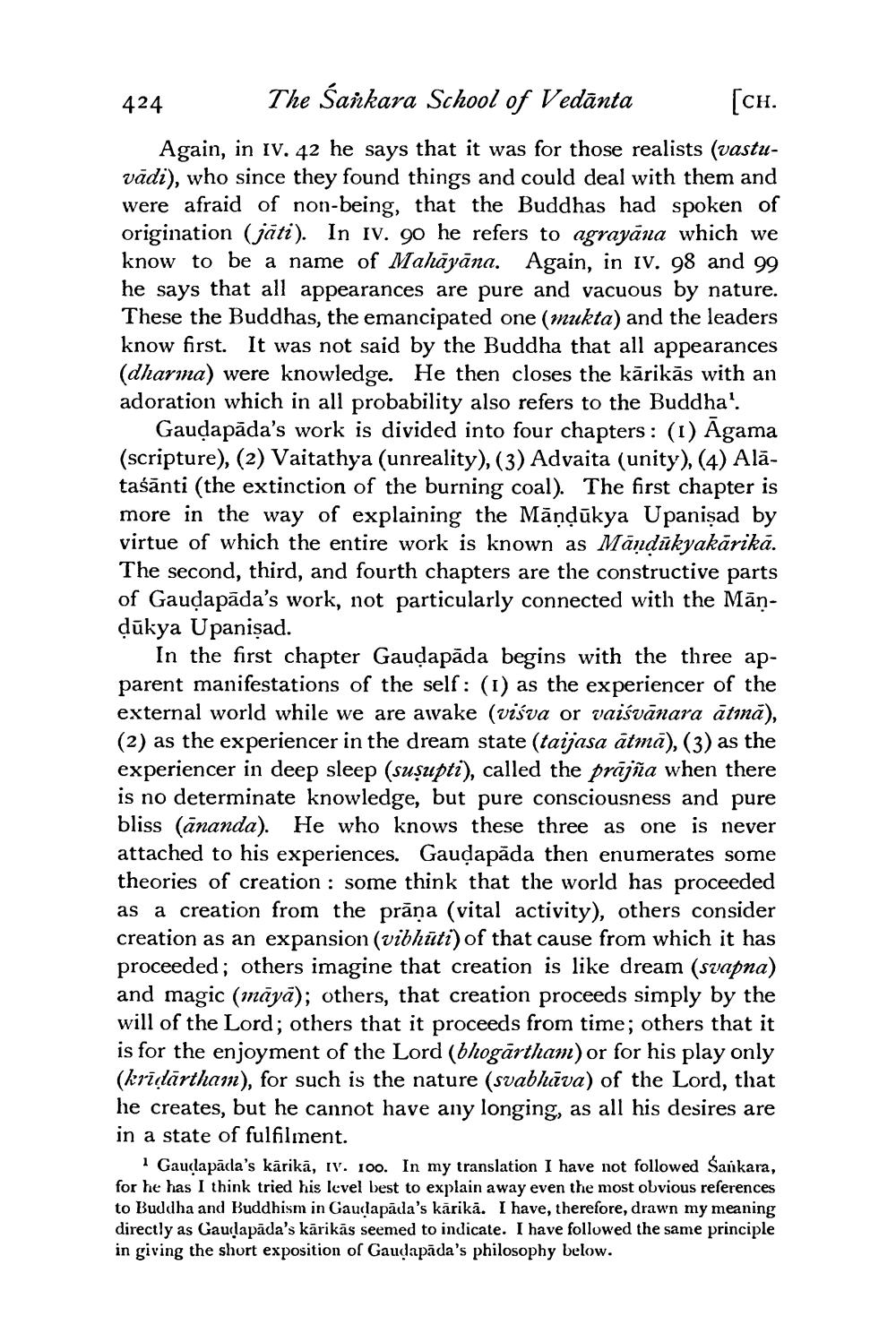________________
424
The Sankara School of Vedānta
[ch.
Again, in iv. 42 he says that it was for those realists (vastuvādi), who since they found things and could deal with them and were afraid of non-being, that the Buddhas had spoken of origination (jāti). In iv. 90 he refers to agrayāna which we know to be a name of Mahāyāna. Again, in iv. 98 and 99 he says that all appearances are pure and vacuous by nature. These the Buddhas, the emancipated one (mukta) and the leaders know first. It was not said by the Buddha that all appearances (dharma) were knowledge. He then closes the kārikās with an adoration which in all probability also refers to the Buddha'.
Gaudapāda's work is divided into four chapters: (1) Agama (scripture), (2) Vaitathya (unreality), (3) Advaita (unity), (4) Alātaśānti (the extinction of the burning coal). The first chapter is more in the way of explaining the Māndūkya Upanişad by virtue of which the entire work is known as Māņdūkyakārikā. The second, third, and fourth chapters are the constructive parts of Gaudapāda's work, not particularly connected with the Māndūkya Upanişad.
In the first chapter Gaudapāda begins with the three apparent manifestations of the self: (1) as the experiencer of the external world while we are awake (viśva or vaiśvānara ātmā), (2) as the experiencer in the dream state (taijasa ātmā), (3) as the experiencer in deep sleep (sușupti), called the prājña when there is no determinate knowledge, but pure consciousness and pure bliss (ānanda). He who knows these three as one is never attached to his experiences. Gaudapāda then enumerates some theories of creation : some think that the world has proceeded as a creation from the prāņa (vital activity), others consider creation as an expansion (vibhūti) of that cause from which it has proceeded; others imagine that creation is like dream (svapna) and magic (māyā); others, that creation proceeds simply by the will of the Lord; others that it proceeds from time; others that it is for the enjoyment of the Lord (bhogārtham) or for his play only (krīdārtham), for such is the nature (svabhāva) of the Lord, that he creates, but he cannot have any longing, as all his desires are in a state of fulfilment.
Gauclapāda's kārikā, Iv. 100. In my translation I have not followed Sankara, for he has I think tried his level best to explain away even the most obvious references to Buddha and Buddhism in Gaudapāda's kārikā. I have, therefore, drawn my meaning directly as Gaudlapāda's kārikās seemed to indicate. I have followed the same principle in giving the short exposition of Gaudapāda's philosophy below.




